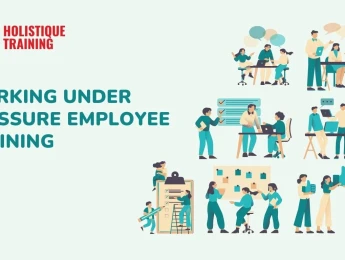Healthcare is a vital sector within society and one that comes with an immense amount of responsibility for maintaining patient safety. One way healthcare organisations uphold patient safety is through confidentiality. Confidentiality ensures that patient information is only shared between the care provider, the patient and anyone else the patient confirms.
To uphold confidentiality, healthcare providers must understand the legal frameworks that govern confidentiality and how they apply to their practice. They should also understand and prepare for the potential challenges of confidentiality and always strive to keep their patients' safety and satisfaction as a top priority.
When confidentiality is broken, healthcare personnel should be aware of how to report it, how to correctly inform the patient, and take all necessary steps to ensure the patient is not put in harm's way.
Upon completion of this course, participants will be able to:
- Understand the vitality of maintaining confidentiality and high standards of ethics within healthcare.
- Evaluate the legal frameworks that govern medical confidentiality to ensure full understanding and compliance.
- Implement best practices to aid in maintaining confidentiality and reducing the potential of a confidentiality breach.
- Investigate and utilise various technologies to increase the security of confidential data.
- Acknowledge the consequences of a potential confidentiality breach.
- Identify a potential confidentiality breach and understand the correct steps to take to minimise potential harm.
- Develop effective communication skills to communicate with patients humanely and ethically.
This course is designed for healthcare professionals who wish to develop their knowledge of confidentiality and ethics. It would be most beneficial for:
- Operations Managers
- Heads of Divisions
- Consultants and Doctors
- Senior Nurses and Nurses
- Hospital Directors
- Healthcare Facilities Managers
- Chief of Medicine
- Patient Administrators
- Legal Personnel Specialising in Medical Law
This course uses a variety of adult learning styles to aid full understanding and comprehension. Participants will review video examples of situations where confidentiality is challenged to discuss and conclude on what the ideal course of action should be.
They will participate in a variety of learning methods and exercises to aid in learning, which include seminars, group discussions, case studies and role-playing activities. This assortment of exercises will guarantee the participants will be able to fully develop their knowledge of the taught content and all related practical skills. The group exercises will further allow the participants to practise and demonstrate the learned skills.
Day 5 of each course is reserved for a Q&A session, which may occur off-site. For 10-day courses, this also applies to day 10
Section 1: Introduction to Confidentiality and Ethics
- Defining what confidentiality and ethics means in relation to the healthcare sector.
- Exploring the historical context of confidentiality and how they have evolved over time to what we know today.
- How maintaining confidentiality leads to ethical healthcare.
- Utilising confidentiality to bond and build trust with patients.
- Understanding the challenges faced through confidentiality and how to navigate these.
Section 2: Legal Framework and Compliance
- Identifying what laws and regulations have a direct involvement with governing medical confidentiality – Human Rights, Data Protection and more.
- Explaining the standards these laws and regulations have set out.
- How these laws and regulations work in comparison to international laws.
- Understanding the concepts of patient rights and informed consent.
- Ensuring full compliance throughout the organisation.
- Reporting obligations and comprehending the potential exceptions to confidentiality.
Section 3: Best Practices
- Strategies and tools to maintain maximum data protection and security.
- Utilising electronic systems to store and secure patient data and ensure it is only accessible to the necessary personnel.
- Communicating with patients and balancing information sharing with confidentiality.
- Providing regular training to employees to ensure all knowledge of confidentiality compliance is understood.
Section 4: Ethics in Practice
- Communicating with all patients in regard to their family and friends – understood who is safe to share information with and not.
- Gaining direct consent to share personal information with others.
- Using confident body language, tone of voice and empathetic languages when communicating with patients and loved ones.
- Educating the patient on their care in a way they understand to ensure they can provide full and informed consent whenever necessary.
Section 5: Handling Confidentiality Breaches
- How to identify if confidentiality has been breached.
- Assessing the next steps to take – reporting and managing the incident.
- Securing patient information as soon as possible to protect the patient.
- Explaining the situation to the patient, apologising, and creating a plan to protect them if necessary.
- Exceptions to confidentiality – when is it acceptable to break confidentiality?
Upon successful completion of this training course, delegates will be awarded a Holistique Training Certificate of Completion. For those who attend and complete the online training course, a Holistique Training e-Certificate will be provided.
Holistique Training Certificates are accredited by the British Assessment Council (BAC) and The CPD Certification Service (CPD), and are certified under ISO 9001, ISO 21001, and ISO 29993 standards.
CPD credits for this course are granted by our Certificates and will be reflected on the Holistique Training Certificate of Completion. In accordance with the standards of The CPD Certification Service, one CPD credit is awarded per hour of course attendance. A maximum of 50 CPD credits can be claimed for any single course we currently offer.
- Course Code IND05-131
- Course Format Classroom, Online,
- Duration 5 days













